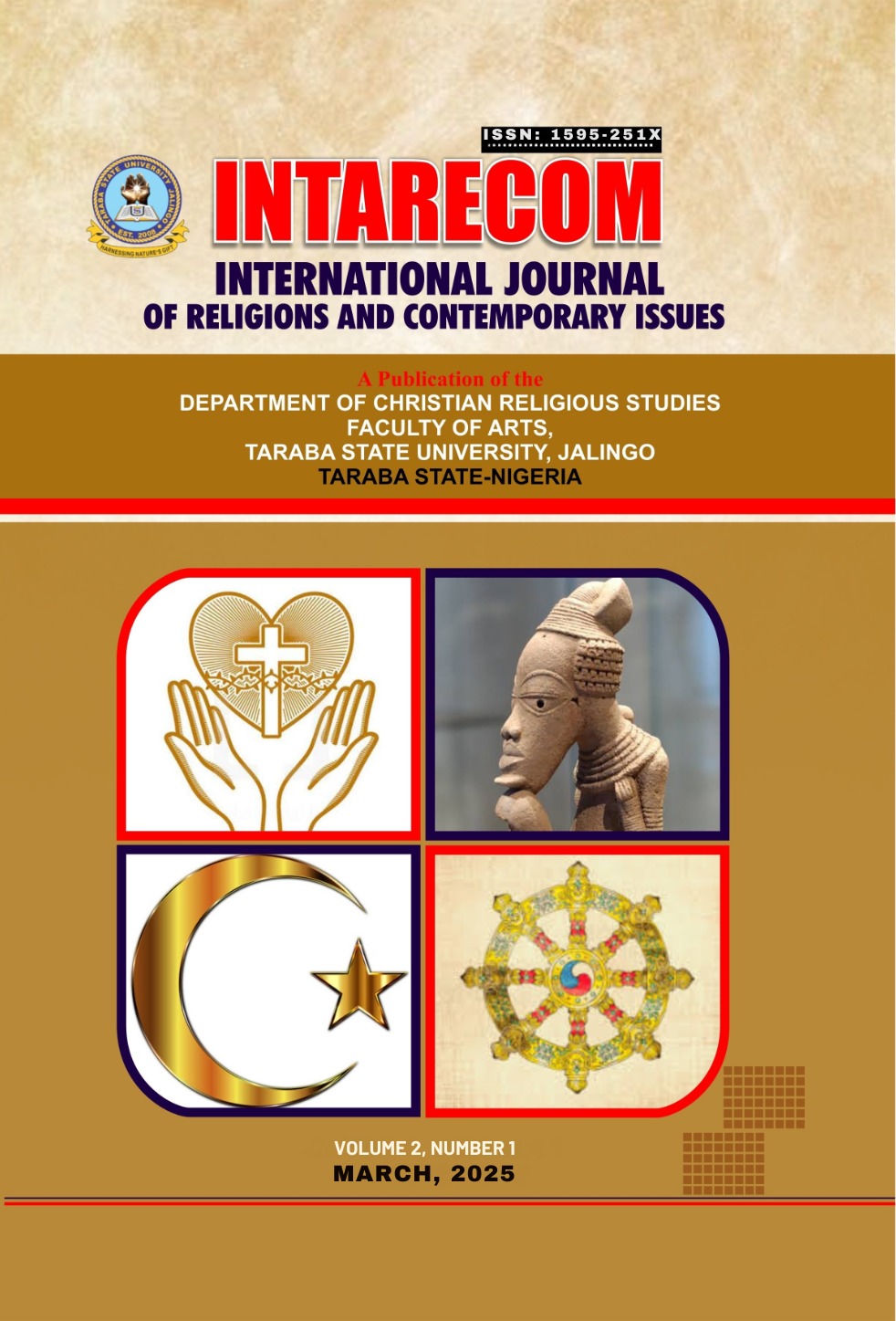A SOCIO-RHETORICAL STUDY OF EXODUS 20:3 AND ITS IMPLICATION ON SYNCRETISM IN CHRISTIANITY
Keywords:
Socio-Rhetorical – Syncretism-FaithAbstract
This article, “A Socio-Rhetorical Study of Exodus 20:3 and Its Implications for Syncretism in Christianity,” employs elements of socio-rhetorical criticism—historical, cultural, social, and theological—to investigate and analyse the first commandment given to the Israelites and its implications for syncretism. The study employed a qualitative research methodology. The study characterised syncretism as the unconscious inclination or deliberate effort to diminish the distinctiveness of a religion by aligning its components with those of other belief systems. The research primarily utilised secondary materials to uncover several forms through which
syncretism has manifested among Christians, including divination and the use of charms, as well as the underlying motivations for such syncretic practices. Moreover, the investigation identified several factors contributing to syncretism, including a deficiency of faith,
superficial evangelisation, religious indifference, and the intrinsic essence of the African cosmological perspective. The research recommended several strategies for addressing the issue of syncretism, including re-evangelization and inculturation, among others.

